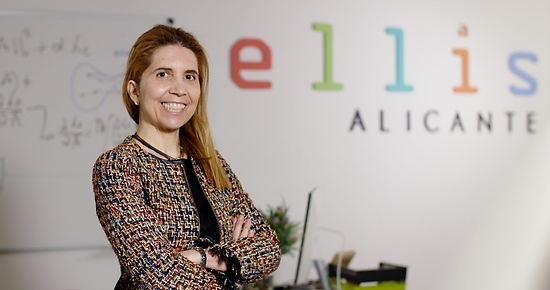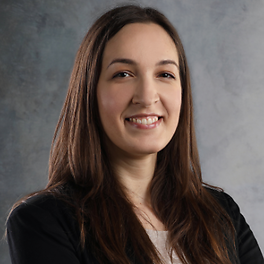September 16, 2022 | News | Workshop
Migration and Mobility Research in the Digital Era (MIMODE 2022)
The recent availability of massive amounts of digital data have profoundly revolutionized research on migration and mobility, enabling scientists to quantitatively study individual and collective mobility patterns at different granularities as generated by human activities in their daily life. Harnessing such digital data offers many new opportunities to study migration and mobility and fill in the gaps left by traditional data. At the same time, such innovative data sources also come with several limitations, biases, and challenges, which have led to diverging research methodologies and frameworks, requiring even greater effort in their operationalization and communication to stakeholders and policy makers.
The aim of this satellite session is to bring together researchers from different fields and practitioners from around the world to facilitate a conversation on the use of innovative digital data sources, new methodologies, empirical findings, and critical challenges of studying migration and mobility in the digital era.
Topics of interest include, but are not limited to:
- New data sources for mobility and migration research, challenges and opportunities
- Internal and international migration, short- and long-term mobility
- Modeling and predicting human mobility patterns
- Machine learning and AI methods for studying mobility
- Longitudinal analyses and empirical studies of mobility and migration
- Socio-economic and environmental drivers of migration
- Integration and segregation of migrant populations
- Measuring the impact of natural disasters, conflicts, climate change, and the COVID-19 pandemic on migration
- Access to mobility data, open science, and privacy concerns
- Evaluation and development of migration policy
Important Dates
June 19, 2022 — Deadline for abstract submissions (midnight CEST)
July 11, 2022 — Notification of abstract acceptance for oral presentation
July 25, 2022 — Deadline for early bird registration
October 19, 2022 — MIMODE 2022 satellite (half-day session)
Call for Abstracts
We welcome submissions of abstracts on ongoing or published work that fit the topics of the event. The submissions must be a single PDF-file of maximum 2 pages in English including the title, list of authors and affiliations, abstract text, descriptive figure or table, and references (optional). The abstracts can be in any format or style as long as they do not exceed the page and word limits. Alternatively, authors can use an abstract template (click here to view our optional formatting template).
Abstracts must be submitted electronically by June 19, 2022, through the Easychair platform at the following link: https://easychair.org/conferences/?conf=mimode2022
All submissions will be evaluated by the Program Committee on the basis of quality and fit to the satellite theme.
Oral presentations will be allocated about 12 minutes, followed by 5 minutes of Q&A. Please note that the presenting author must register to the main conference as announced on CCS2022 website.
Registration & Venue
MIMODE 2022 is a satellite of the Conference on Complex Systems CCS2022, and will take place in Palma de Mallorca, Spain (and online) on October 19, 2022.
Satellite participants (with or without abstract submission) will have to register following the procedure described in the CCS2022 conference website: https://www.ccs2022.org/index.php/registration/registration-fees
Presenting authors can indicate their availability to travel to Spain in October 2022 in the submission platform. We will consider researchers’ needs and organize our satellite event accordingly as we approach the date of the event. More details will follow soon.
The conference venue will be the Auditorium of Palma de Mallorca Convention Center located in: Paseo Marítimo 18, 07014, Palma de Mallorca, Illes Balears (Spain).
To know more about the venue, please visit the conference website: https://www.ccs2022.org/index.php/general-information/venue
Program
10:00 - 10:15 Opening
10:15 - 10:30
Neural probabilistic modeling of individual daily trajectories.
Takayuki Mizuno, Shouji Fujimoto and Atushi Ishikawa
10:45 - 11:00
Internal migration and mobile communication patterns among pairs with strong ties.
Mikaela Irene Fudolig, Daniel Monsivais, Kunal Bhattacharya, Hang-Hyun Jo and Kimmo Kaski
11:15 - 11:30
Commuting between municipalities in Spain: Estimating mobility patterns over the past decade.
John Palmer
11:00 - 11:30 Coffee break
11:30 - 12:15
Keynote speaker: Nuria Oliver
12:15 - 12:30
Facebook data validity analysis for studying immigration to Mexico.
Tania Varona, Claudia Masferrer, Victoria Prieto and Martín Pedemonte
12:30 - 12:45
Use of non-traditional data sources to nowcast migration trends through Artificial Intelligence technologies.
Diletta Goglia, Laura Pollacci and Alina Sirbu
12:45 - 13:00
The value of cultural similarity for predicting migration: Evidence from food and drink preferences in Facebook data.
Carolina Coimbra Vieira, Sophie Lohmann and Emilio Zagheni
13:00 Closing
Invited Speakers

© Nuria Oliver
Nuria Oliver
Dr. Nuria Oliver is co-founder and Director of the Institute of Humanity-centric AI (Alicante ELLIS Unit); Chief Data Scientist at Data-Pop Alliance, Chief Scientific Advisor at the Vodafone Institute and co-founder and vice president of ELLIS (The European Laboratory for Learning and Intelligent Systems). She is a Telecommunications Engineer from the UPM and holds a PhD in Artificial Intelligence from the Massachusetts Institute of Technology (MIT).
Her work in the computational modeling of human behavior using Artificial Intelligence techniques, human-computer interaction, mobile computing and Big Data analysis - especially for the Social Good is well known with over 160 scientific publications that have received more than 22,000 citations and 11 best paper award nominations and awards. She is co-inventor of over 40 filed patents and she is a regular keynote speaker at international conferences.
Twitter: @nuriaoliver
Program Committee
- Guy Abel, Shanghai University
- Vissého Adjiwanou
- Laura Maria Alessandretti, ENS Lyon
- Carlos Arcila, USAL
- Marc Barthelemy, CEA
- Aude Bernard, The University of Queensland
- Ram B Bhagat, International Institute for Population Sciences
- Tuba Bircan, Vrij Universiteit Brussel
- Chiara Boldrini, CNR-IIT
- Elin Charles-Edwards, University of Queensland
- Noemi Derzsy, AT&T Labs Research
- Yao Robert Djogbenou, University of Montreal
- John Ellis, University of Washington
- Floriana Gargiulo, GEMASS - CNRS and University of Paris Sorbonne
- Kiran Garimella, Aalto University
- Katherine Hoffmann Pham, New York University
- Yuan Hsiao, University of Washington
- Miranda Jessica Lubbers, Autonomous University of Barcelona
- Andrea Miranda Gonzalez, University of California, Berkeley
- Sophie Muetzel, University of Lucerne, Dept of Sociology
- Emmanuel Olamijuwon, University of the Witwatersrand/University of St Andrews
- John Palmer, Pompeu Fabra University
- Luca Pappalardo, University of Pisa, & KDDLab (ISTI-CNR)
- Jose J. Ramasco, IFISC (CSIC-UIB)
- Francesco Rampazzo, University of Oxford
- Marzia Rango, International Organization for Migration
- Victoria Rosas, Universidad de la República
- Giulio Rossetti, KDD Lab ISTI-CNR
- Francisco Rowe, University of Liverpool
- Albert Ali Salah, Utrecht University
- Niklas Sievers, IOM Global Migration Data Analysis Centre (GMDAC)
- Alina Sirbu, University of Pisa
- Michele Tizzoni, ISI Foundation
- Raffaele Vacca, University of Milan
- Ingmar Weber, Saarland University
- Arkadiusz Wiśniowski, University of Manchester
- Emilio Zagheni, Max Planck Institute for Demographic Research
Organizers

© Jisu Kim
Jisu Kim, Research Scientist, Laboratory of Digital and Computational Demography, MPIDR.
Jisu holds a PhD in Data Science from Scuola Normale Superiore in Italy. She has worked on exploring and establishing novel methods to improve relevant statistics of international migration using social media data. Her research focuses on the intersection of migration sciences, economics of migration, complex social networks, statistical models and data-driven algorithms.

© MPIDR
Daniela Perrotta, Research Scientist, Laboratory of Digital and Computational Demography, MPIDR.
Daniela Perrotta completed her PhD in Complex Systems for Life Sciences at the University of Turin with a fellowship at the Laboratory of Digital and Computational Epidemiology at the ISI Foundation in Italy. Her research focuses on harnessing innovative data-collection schemes and computational methods for modeling human mobility and disease spread.
Contact the Organizers
mimode2022@easychair.org